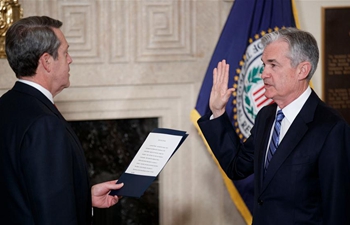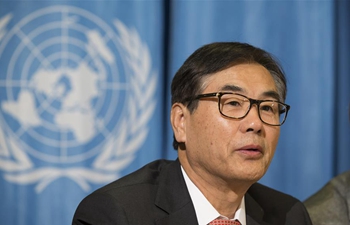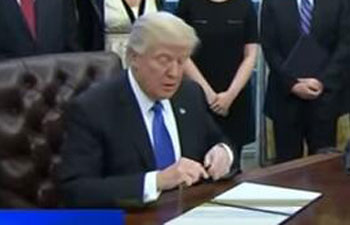by Victoria Arguello
BUENOS AIRES, Feb. 5 (Xinhua) -- U.S. Secretary of State Rex Tillerson's Latin America visit aims to maintain Washington's influence by curbing regional countries' relations with the outside world, an Argentinean political analyst said.
Tillerson Thursday kicked off his week-long trip, which covers Mexico, Argentina, Peru and Colombia with a stop in Jamaica. Some of these countries have been targeted by the White House's immigration policies in the past year.
"It would appear as if the United States was contradicting itself, but in reality it is a complementary practice. It is the doctrine of 'America for the Americans,'" Pedro Brieger told Xinhua.
Prior to his trip, Tillerson warned Latin America against forging close ties with other countries, and accused China of "using economic statecraft to pull the region into its orbit."
In response, Chinese Foreign Ministry spokesperson Hua Chunying said Friday that "the development of China-Latin America ties does not target or reject any third party, nor does it affect the interests of third parties in Latin America."
Hua urged relevant countries to abandon the outdated concept of zero-sum game and look at the development of China-Latin America relations in an open and inclusive manner.
"Latin America is a network of U.S. influence, and everything that happens here will affect its presence," said Brieger, who is also director of the news website Nodal.
In his speech at the University of Texas on Thursday, Tillerson also resurrected the Monroe Doctrine of U.S. supremacy over Latin America, saying it was as "relevant" today as it was in the early 1820s, when it was first designed to scale back the influence of European countries in the region in order to assert Washington's domination.
Once directed at Spain, France and Britain, the doctrine is now clearly against Russia and China, which have become important partners of Latin America after decades of cooperation, Brieger said.
"Rex Tillerson's speech indicates the Monroe Doctrine is on the table again," he added.
So, while the U.S. foreign policy remains largely the same, Brieger said, what has changed in the past 20 years is China's trade and cultural proximity to Latin America: "China has become the leading trade partner for several countries in this sphere, and that is something that does not please the foreign policy of the United States."
Washington's anti-China rhetoric is a typical right-wing tone of the Republican Party, which is aggressively against any kind of multilateralism, he said.
"In matters of ideology and policy, the Republicans are much more closed. If the United States is always thinking of its hegemony, today it is thinking even less about multipolarity," Brieger said.













